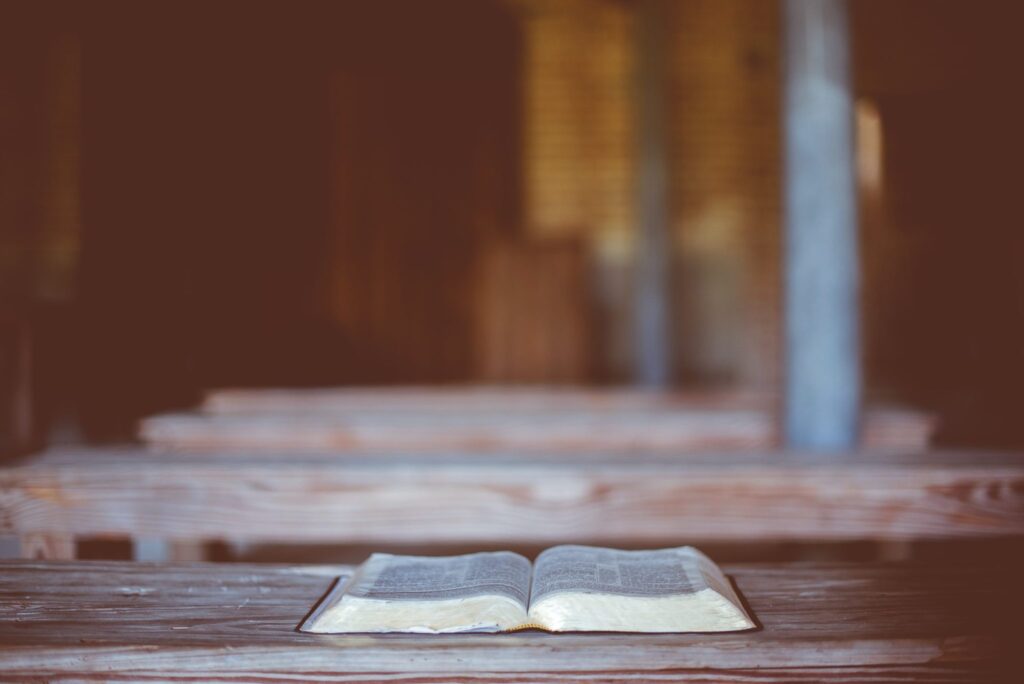Jay Blogs – A Bright Sadness
Description for this block. Use this space for describing your block. Any text will do. Description for this block. You can use this space for describing your block.

I was a cradle Episcopalian, christened as a child, confirmed in middle school, and faithfully attending the Church of England in America until I was in my early 20s. Practices like liturgy and following the Church calendar were old hat to me. After a dry season of faith in law school, I recommitted my life to Christ. I discovered the nondenominational, evangelical church, which seemed full of life and deeply rooted in studying, understanding, and being guided by the reviving Word of God. Like so many other young people of faith, I turned from the style and trappings of my youth, leaving behind things like liturgy and observing the Church seasons, mistakenly believing in my naivete these were relics of a dead faith.
I was so wrong. While that season of my life certainly ignited a renewed love of Scripture and was tremendously enriching in developing a deep love of Jesus, leaving behind those other things was error. Through God’s faithfulness, I’ve rediscovered these rich treasures of our faith, like good childhood friends who never really stop loving you, even when you think you’ve become too cool.
I’ve written often recently on the power of liturgy to mold and shape our hearts and affections, whether earthward in the way so much constant attention to digital technology and social media will do, or heavenward through the practices of Bible study, prayer, silence, and solitude. Likewise, the Church calendar, with its seasons of watching and waiting and hoping and its great celebrations, conform our spirits to the rhythms carved into our hearts by our Creator, providing opportunities for remembrance and aligning us with Him. Lent, the Church season in which we now find ourselves, is one of those opportunities to be molded into cruciform lives.
The Greek Orthodox Church calls Lent “the Bright Sadness,” as apt a description as there is for this special season. Bright, in the sense that it harkens the coming of our redemption and restoration, from rebels consigned to eternal death and a futile life to the fullness and richness of being reunited with our Loving Father. Sad, in the contemplation of the bloody, traumatizing cost of that reunion. Lent, perhaps more than any other, is the time of the year when both the joy and grief of life and love in Christ are made most manifest to us.
Lent is a time of fasting. If we fast at all in this or any other season, it’s easy to anchor that heavenly practice in worldliness, using it as an opportunity or substitute for dieting, an excuse to lose a few pounds, or perhaps to try to break bad habits we’ve neglected all year long. But, fasting is so much more than a self-help tool. It’s an opportunity to remind us that, while everything this world provides is God’s gracious gift, nothing alone truly satisfies. When we purposefully step away from something good for a season, those things that we may often even use as a palliative to numb our pain, this denial heightens and sharpens our senses, reminding us that only in Christ do we “live and move and have our being.” It brings us to reckoning with the fact that everything else we trust or hope in is vain at best, idolatry at worst.
Lent is also a season of waiting. Shortly before His passion and death, Jesus told His disciples, “A little while, and you will no longer see me, and again a little which, and you will see me.” (John 16:16). The disciples were to wait: wait for the Holy Spirit to come and empower them, and to wait for His coming again. The Christian life is about waiting, but not in the same way we wait in line at the grocery store or Chick-fil-A, or wait for our spouse to get ready for the upcoming party. It’s not killing time. The Christian life is intentionally waiting with hopeful expectation, to know our King is coming to set us free and to make all things new.
This beautiful hope was made real to me a couple of weeks ago as I was visiting with a friend of mine who has stage 4 prostate cancer. He’s had every treatment there is, and he’s at the point now where he’s “hoping for a miracle.” In encouraging him, I prayed with him for that same miracle, but God also moved me to remind him that soon he and I would be standing in the New Jerusalem, the perfect city that God has restored, living in actual resurrection bodies that are also perfect and healthy and whole and glorified, living and working and playing together with Jesus and each other for eternity. As I shared this vision straight from Revelation 20-22 with him, his face lit up, and he teared up, and I watched his countenance transform, Thinking about this beautiful truth that awaits him transformed him, as it will all of us if we’ll only take the time to contemplate that in which we wait and hope. Intentionally waiting in the truth and hope of what will be dramatical changes how we live right now.
I often complain about this passing, dying world; rarely do I let thoughts of the next transform the way I live my today. The desire to be known and loved and esteemed holds me back. The quest for comfort and peace holds me back. Lent gives me an opportunity, if I’ll take it, to wait upon the Lord, pressing into the root of my hope, and everything that future means for how I live in this present.
Finally, Lent is about repentance, a turning back from my former ways that still threaten to hold me close. The older I become, the more I learn that life is not about becoming a better, more cleaned-up version of me; instead, it means (infinitely more gradually than I would like) becoming more in the image of Christ. And, that doesn’t mean perfection, but an inclination towards repentance. I probably don’t sin as much in certain areas as I did when I was younger, but I really don’t know whether that means I’m holier or just don’t have the energy for sin I once had. A deepening walk with Jesus doesn’t mean I’m not tempted, or that I don’t sin, or that I’ve moved beyond its clutches. It simply means that when I do sin, I’m much more immediately convicted and drawn back to the heart of God, together with a deep desire to confess my lostness without Him and to be reconciled with Him.
I remember when my girls were toddlers and small children and they were disobedient, and Ashley and I had to discipline them. It always amazed me when so often, their initial response was not to run screaming angrily away from us, but to run towards us with outstretched arms. They wanted us to hold them. I believe that in that moment, they sensed they had wronged us, and they were eager to be restored. It reminds me of the heart of David: “against thee only have I sinned, and done what is evil in your sight” and, “create in me a clean heart, O God, and renew a right spirit within me.” (Ps. 51). Developing a heart of repentance is a childlike heart, the heart of David, and a heart after God’s.
Augustine spoke of “rightly ordered loves,” of having the Lord first and foremost the chief love of our lives, and everything else-our family, other people, our work- as an expression of that first love. Confession and repentance are processes by which Augustine, and we, learn to turn our hearts away from disordered loves, for which our hearts were never designed and which will never bring us peace or joy, and toward that right order: “Our heart is restless until it finds its rest in You.” (Augustine’s Confessions)
Lent isn’t mentioned in the Bible; it’s not a scriptural command to observe. Our freedom in Christ, the sufficiency of His blood for our righteousness, means we don’t have to engage in rituals to earn favor with God. Yet, the Church is Christ’s bride, and by God’s grace we are deeply connected to something so ancient, so much more profound than the ephemeral nature of our cultural context. Like Sabbath, or fasting, or other blessings from the Lord, these things aren’t commanded, yet they make us more whole when we engage. Exercise is not required to live; plenty of people survive without it. Yet, exercising makes life richer, fuller, and, in many cases, longer. Spiritual exercises, like observing Lent, exercise the soul. I pray you’ll enjoy the richness that this season has to offer as you wait upon the coming of our Lord.
Jay Ferguson, Ph.D., Head of School at Grace Community School, writes regularly on his blog, JaysBlog.org.
